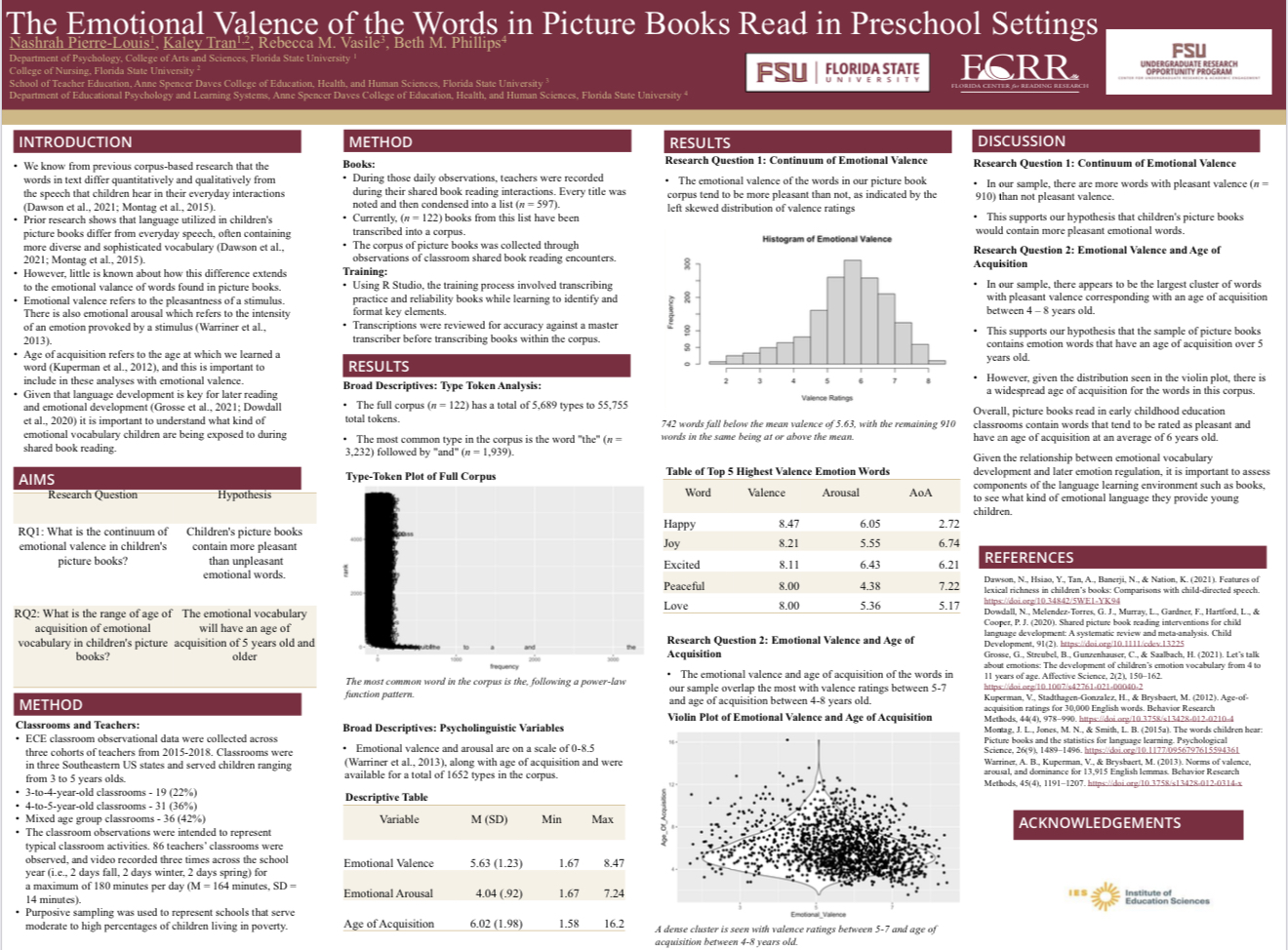Research Symposium
25th annual Undergraduate Research Symposium, April 1, 2025
Kaley Tran Poster Session 2: 10:45 am - 11:45 am/ Poster #245

BIO
Kaley Tran is a sophomore at Florida State University, dual majoring in Nursing and Psychology with a minor in Child Development. She serves as Vice President of Events and Programming for Kappa Delta Sorority and volunteers in the Bilxer Emergency Room at Tallahassee Memorial Hospital. Passionate about children’s well-being, she plans to become a Pediatric Nurse Practitioner.
The Emotional Valence of the Words in Picture Books Read in Preschool Settings
Authors: Kaley Tran, Rebecca VasileStudent Major: Psychology and Pre-Nursing
Mentor: Rebecca Vasile
Mentor's Department: Department of Educational Psychology Mentor's College: School of Teacher Education, Anne Spencer Daves College of Education, Health, and Human Sciences, Florida State University Co-Presenters: Nashrah Pierre Louis
Abstract
We know from previous corpus-based research that the words in text differ quantitatively and qualitatively from the speech that children hear in their everyday interactions (Dawson et al., 2021; Montag et al., 2015).
• Prior research shows that language utilized in children's picture books differ from everyday speech, often containing more diverse and sophisticated vocabulary (Dawson et al.,
2021; Montag et al., 2015)
• However, little is known about how this difference extends to the emotional valance of words found in picture books.
• Emotional valence refers to the pleasantness of a stimulus.
There is also emotional arousal which refers to the intensity of an emotion provoked by a stimulus (Warriner et al., 2013).
• Age of acquisition refers to the age at which we learned a word (Kuperman et al., 2012), and this is important to include in these analyses with emotional valence.
• Given that language development is key for later reading and emotional development (Grosse et al., 2021; Dowdall et al., 2020) it is important to understand what kind of emotional vocabulary children are being exposed to during shared book reading.
Keywords: Child Development, Literacy, Education


